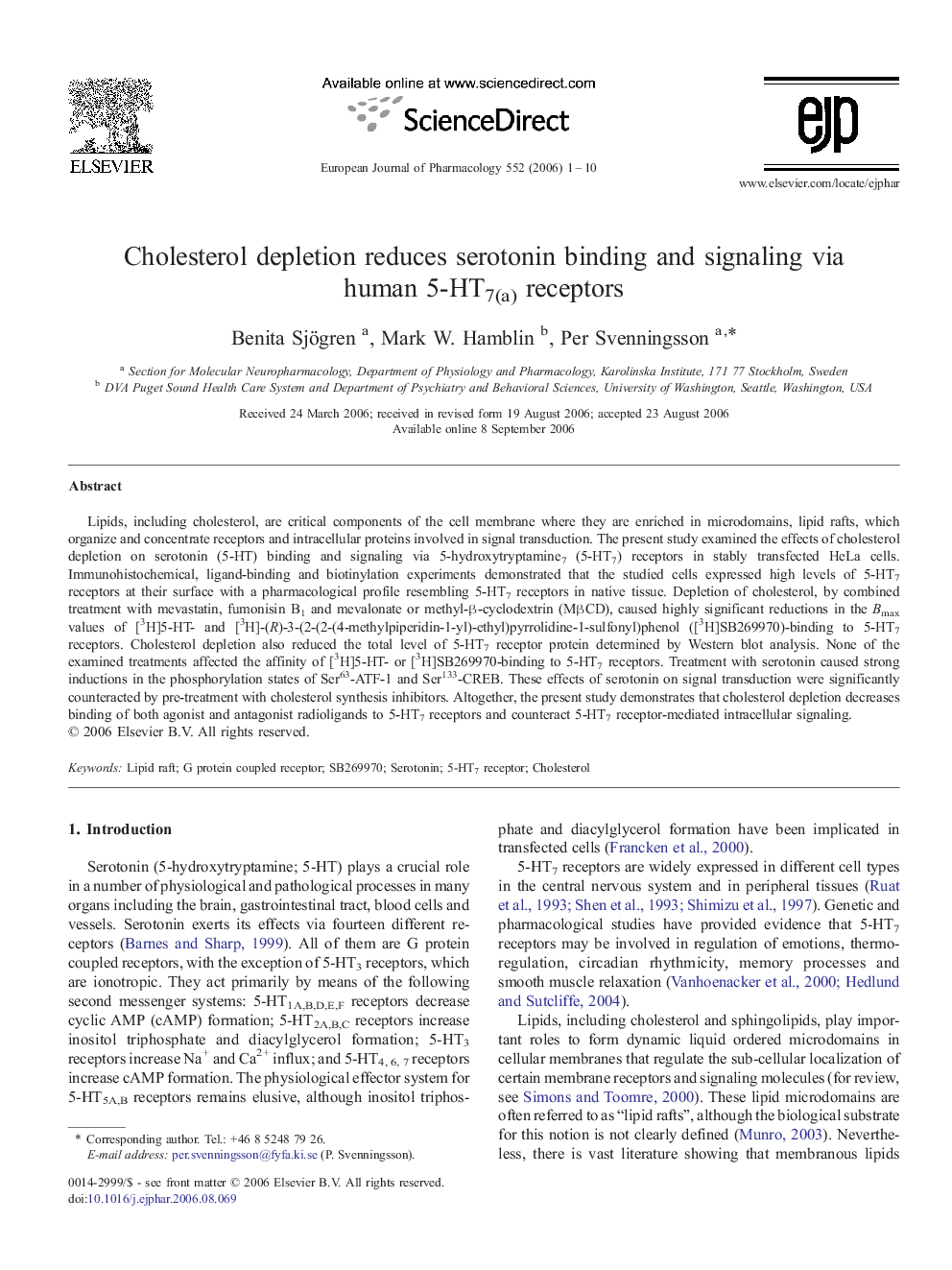| Article ID | Journal | Published Year | Pages | File Type |
|---|---|---|---|---|
| 2536681 | European Journal of Pharmacology | 2006 | 10 Pages |
Lipids, including cholesterol, are critical components of the cell membrane where they are enriched in microdomains, lipid rafts, which organize and concentrate receptors and intracellular proteins involved in signal transduction. The present study examined the effects of cholesterol depletion on serotonin (5-HT) binding and signaling via 5-hydroxytryptamine7 (5-HT7) receptors in stably transfected HeLa cells. Immunohistochemical, ligand-binding and biotinylation experiments demonstrated that the studied cells expressed high levels of 5-HT7 receptors at their surface with a pharmacological profile resembling 5-HT7 receptors in native tissue. Depletion of cholesterol, by combined treatment with mevastatin, fumonisin B1 and mevalonate or methyl-β-cyclodextrin (MβCD), caused highly significant reductions in the Bmax values of [3H]5-HT- and [3H]-(R)-3-(2-(2-(4-methylpiperidin-1-yl)-ethyl)pyrrolidine-1-sulfonyl)phenol ([3H]SB269970)-binding to 5-HT7 receptors. Cholesterol depletion also reduced the total level of 5-HT7 receptor protein determined by Western blot analysis. None of the examined treatments affected the affinity of [3H]5-HT- or [3H]SB269970-binding to 5-HT7 receptors. Treatment with serotonin caused strong inductions in the phosphorylation states of Ser63-ATF-1 and Ser133-CREB. These effects of serotonin on signal transduction were significantly counteracted by pre-treatment with cholesterol synthesis inhibitors. Altogether, the present study demonstrates that cholesterol depletion decreases binding of both agonist and antagonist radioligands to 5-HT7 receptors and counteract 5-HT7 receptor-mediated intracellular signaling.
